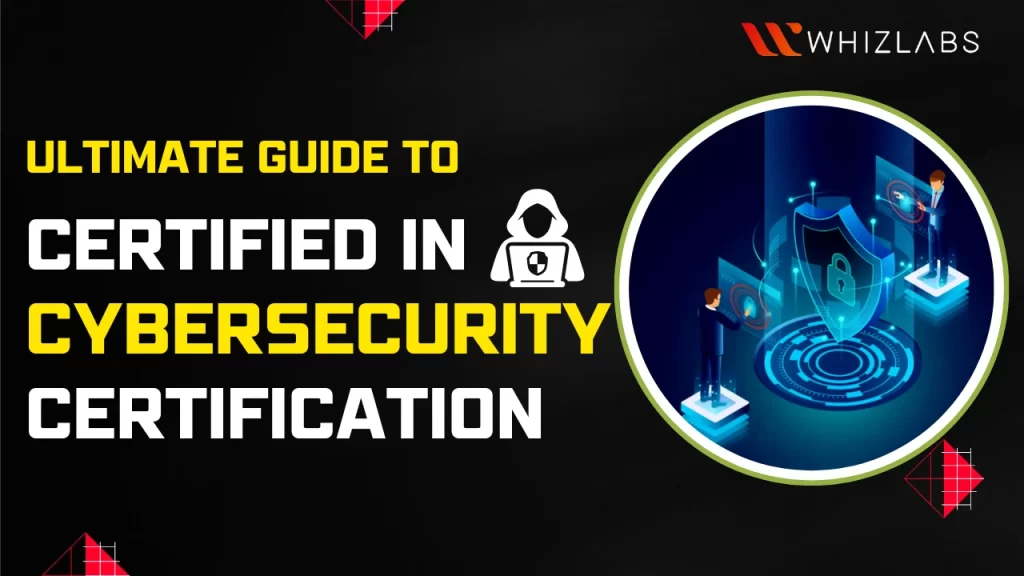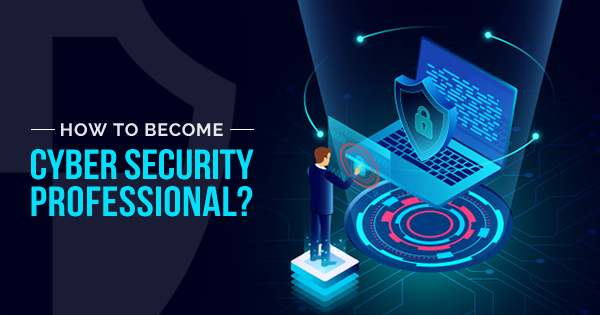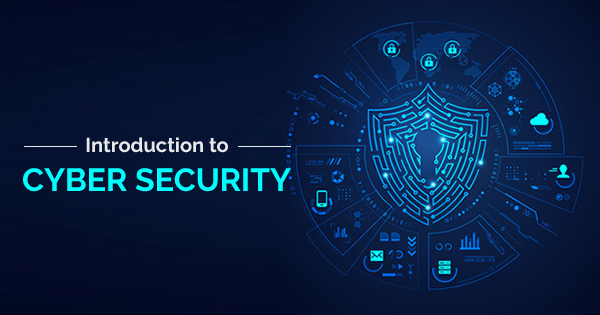If you want to kick-start a career in Cybersecurity as a newbie? If so, then Certified in Cybersecurity Certification is definitely for you.
Certified in Cybersecurity Certification is mainly introduced for starters. Taking this certification can build solid understanding on fundamentals of cybersecurity concepts.
To aid the preparation process, this blog walks you through an overview of exams, skills required, pre-requisites, study materials, tips and much more.
Overview of Certified in Cybersecurity Certification
Certified in Cybersecurity Certification is a fundamental level exam. The Certified in Cybersecurity Certification offered by (ISC)² is primarily aimed at individuals who wish to enhance their expertise and understanding of essential security policies, procedures, and best practices in the field of cybersecurity.
Also Read: What are the Top 5 Highest Paying Cybersecurity Jobs?
Obtaining this certification validates your expertise in IT security and your ability to plan, carry out, and monitor a cybersecurity programme.
Those who pass Certified in Cybersecurity Certification can be able to acquire knowledge and skills on:
- Security policies and procedures
- Types of threat actor attacks
- Mitigation techniques to address security concerns
- Secure architecture
- Other essential cybersecurity concepts
What skills can you expect from the Certified in Cybersecurity Certification?
The Certified in Cybersecurity Exam assesses a candidate’s skills and knowledge in the following key areas.
Security principles: Approximately 26% of the exam covers and it may include understanding concepts of information assurance, the risk management process, security controls, and governance processes.
Business Continuity (BC), Disaster Recovery (DR), and Incident Response Concepts: Another 10% of the exam covers topics on business continuity concepts.
Access Control Concepts: It may account for 22% of the exam and covers topics on physical and logical access control.
Network Security: This domain makes up 24% of the exam and covers topics such as networking, threats and attacks, and network security infrastructure.
Security Operations: It represents 18% of the exam and covers data security, security hardening, security policies, and security awareness training.
Who should take the Certified in Cybersecurity Certification?
Cybersecurity is only one of several options available to people interested in a career in technology. There are numerous benefits to adopting this path for you and your professional objectives because it is a sought-after profession.
Certified in Cybersecurity Certification can be taken by the following job roles:
- Current IT professional
- Individual who are looking for transition from another field into cybersecurity
- A college student or recent graduate
Why should you take the Certified in Cybersecurity Certification exam?
If you are a starter, experienced or anyone, you can take cybersecurity certification, as it does not need any experience at all. If you have the intention to make your career in cybersecurity, then this certification will be right for you. And some more statements laid down to know why to take cybersecurity certifications:
Pathway to cybersecurity careers: By taking the Certified in Cybersecurity Certification, one can be able to gain a solid foundation in cybersecurity and be helpful in getting advanced certification like CISSP.
Higher salaries: If you are a (ISC)² member, you will get an average salary of 35% which is higher compared to non members.
Job Opportunities: Getting certified in cybersecurity can aid individuals in improving their knowledge and skills in cybersecurity. Thus, individuals showcase their abilities to potential employers and get more job opportunities.
Prerequisites of the Certified in Cybersecurity Certification exam
There are no formal prerequisites needed to take the Certified in Cybersecurity Exam. But having certain skills and knowledge in following topics can add credential. And they are:
- Candidate must have some basic working knowledge in Information technology
- Some basic knowledge about cybersecurity threats and vulnerabilities
What Are the Benefits of a Career in Cybersecurity?
A career in cybersecurity is a reasonable choice because organizations, people, and sectors require ongoing protection from cybercriminals. There are 2 cyberattacks, according to a recent report by the Centre for Risk and Reliability and Institute for Systems Research.
More than 2.7 million people are needed to fill the worldwide cybersecurity workforce, according to the most recent (ISC)2 Cybersecurity Workforce Study. The need for cybersecurity professionals has never been higher as a result of the severe manpower shortages that employers around the globe are experiencing.
Know More: How to Become a Cyber Security Professional?
The study kept an eye on a number of computers connected to the internet and found that they were attacked 2,244 times each day on average. Additionally, according to Forbes, 74% of cyberattacks are perpetrated by workers.
Companies must constantly protect themselves against online criminals. This indicates that a career in cybersecurity is both lucrative and promising, with no immediate signs of stagnation.
The average yearly compensation for a cybersecurity specialist is roughly $112,000, according to ZipRecruiter. Although the exact amount depends on your region, expertise, and the company or person you choose to work for, even cybersecurity experts in the bottom 25% make about $60,000.
After several years in the industry, some cybersecurity experts may make over $300,000 per year. Although it’s not a given, obtaining specialized qualifications and accumulating more experience will improve your chances of earning a higher pay.
Unlike certain professions, cybersecurity is not as specialized. You have a number of expertise to select from, or you can structure your work such that you only ever have to deal with the topics you find interesting. With so many positions accessible, the likelihood that you will get bored at work is substantially lower.
There are never any dull days in a career in cybersecurity because it is full of challenges and frequently calls for problem-solving abilities. There will be a lot of new technology you’ll be using, or you can opt to concentrate on a single technology that you particularly like. There are plenty of activities and stimulating jobs available in the cybersecurity industry, regardless of the function you decide to complete.
Certified in Cybersecurity Certification Exam Domains
This Certified in Cybersecurity Certification maps to the (ISC)² exam objectives and it covers the following topics:
| Domains | Weightage |
| Security Principles | 26% |
| Incident Response, Business Continuity (BC) and Disaster Recovery (DR) Concepts | 10% |
| Access Controls Concepts | 22% |
| Network Security | 24% |
| Security Operations | 18% |
Security Principles
- Understanding the security concepts of information assurance
- Understanding the risk management process
- Understanding security controls
- Understanding (ISC)² Code of Ethics
- Understanding governance processes
Business Continuity (BC), Disaster Recovery (DR) & Incident Response Concepts
- Understanding business continuity (BC)
- Understanding disaster recovery (DR)
- Understanding incident response
Access Controls Concepts
- Familiar with physical access controls
- Familiar with logical access controls
Network Security
- Knowing concepts of computer networking
- Understanding network threats and attacks
- Understanding network security infrastructure
Security Operations
- Knowing data security
- Knowledge on system hardening
- Knowledge on best practice security policies
- Knowledge on security awareness training
Study materials to refer for Certified in Cybersecurity Certification exam
To clear the Certified in Cybersecurity Certification exam, it is best to grasp the best study materials. (ISC)² itself offers effective study materials and you can be able to get familiar with the Certified in Cybersecurity concepts.
Here are some study materials you can refer to:
Official (ISC)² Certified in Cybersecurity eTextbook
The eTextbook offered by the (ISC)² can provide the opportunity to enhance the knowledge on the cybersecurity concepts and dive in-depth into the five domains covered in the Cybersecurity eTextbook.
Flash Cards
If you want to continue your learning process from anywhere, then you must surely change over to flashcards. It makes the learning process more interactive and tests your knowledge of industry terms by offering instant feedback about whether or not your answer is correct.
Online Study Group
Your learning can be better if you are subjected to virtual learning and it can be possible by joining online study groups. By joining online study groups, one can be able to clear their doubts and get clarifications on how to make the preparation to be successful.
Online instructor-led training enables you to work independently through an interesting self-paced experience while also taking part in live sessions conducted by a (ISC)2 Authorised Instructor.
You may learn at your own pace with online self-paced training owing to its modular video content and interactive study guides.
Candidates have the chance to reinforce their learning with both training choices through peer conversations, pre- and post-course evaluations, knowledge exams, flip cards, and study sheets with essential concepts, words, and definitions.
An authorized (ISC)² instructor conducts review sessions that focus on the five domains of the entry-level Certified in Cybersecurity certification. These sessions are specifically designed to help learners prepare for the Certified in Cybersecurity exam.
How to prepare for the Certified in Cybersecurity Certification?
Here are some preparation tips for the Certified in Cybersecurity Certification:
- Understanding Exam Content: Familiarize yourself with the exam content and the five domains that are covered in the exam. This will give you an idea of what to expect and where to focus your preparation efforts.
- Using Official Study Materials: Use official study materials such as the (ISC)² Official Study Guide and practice exams to prepare for the exam. These materials are specifically designed to help you prepare for the exam and cover all the necessary topics.
- Develop a Study Plan: Make a study plan that covers all the exam content and stick to it. This will help you stay organized and focused on your preparation.
- Practice, Practice, Practice: Take practice exams and quizzes to gauge your understanding of the exam content. This will help you identify your weak areas and focus your efforts on improving them.
- Stay Up-to-Date: You need to be updated with the latest cybersecurity trends, technologies, and best practices. This will help you understand the context of the exam content and how it applies to real-world scenarios.
- Seek Support: Getting support from peers, colleagues, or a mentor who has taken the exam before. They can provide you with valuable insights and tips on how to prepare effectively.
By following these tips, you can improve your chances of passing the Certified in Cybersecurity Certification exam and achieving your career goals in the field of cybersecurity.
FAQs
Is certified in cybersecurity certification worth IT?
Yes, obtaining the Certified in Cybersecurity certification can be worth it for individuals seeking to advance their careers in the cybersecurity field. This certification demonstrates that you have a solid understanding of fundamental security policies, procedures, and best practices, as well as knowledge in other essential areas such as threat actor attacks, mitigation techniques, and secure architecture.
Furthermore, the certification is recognized globally and is highly regarded by employers in the industry. It can help differentiate you from other candidates and increase your chances of landing a job or advancing in your current role. Additionally, certified professionals typically earn higher salaries than non-certified professionals in the same roles.
Overall, if you are looking to enhance your cybersecurity knowledge, demonstrate your expertise to employers, and potentially increase your earning potential, the Certified in Cybersecurity certification can be a valuable investment in your career.
Can I learn cyber security within 6 months?
It is possible to learn cybersecurity in 6 months through online courses. These courses typically last between 3 to 6 months, and upon completion, you can become a certified cybersecurity professional.
How do I become a cyber security certified?
To become a certified cybersecurity professional, you must pass one or more certification exams and maintain your certification by earning continuing education units (CEUs). This demonstrates that your skills and knowledge align with the demands of current cybersecurity job requirements.
What are the best certifications to begin a career in cyber security?
The below-shown cybersecurity certification can be taken for pursuing a career in cybersecurity:
- Cisco Certified Network Associate (CCNA)
- CompTIA A+ security certification
- CompTIA Security+ certification
- CompTIA PenTest+ certification
- GIAC Information Security Fundamentals (GISF) certification
- (ISC)² Associate certification
- (ISC)² Systems Security Certified Practitioner (SSCP) certification
- ISACA CSX Cybersecurity Fundamentals Certificate
Summary
Having the right cybersecurity certifications can leverage your career prospects and help you to stay competitive in the industry. It is wise to utilize the time to research and identify the different certificates available, as well as the prerequisites for each one.
At the same time, you should look for a professionally accredited platform that offers hands-on labs, provides support and guidance, and allows you to stay updated with the latest trends and technologies.
It’s important to take the first step and become proactive. Preparing for the certification takes time, and you are well on your way.
Having any doubts on this post, please feel free to comment us!
- Top 20 Questions To Prepare For Certified Kubernetes Administrator Exam - August 16, 2024
- 10 AWS Services to Master for the AWS Developer Associate Exam - August 14, 2024
- Exam Tips for AWS Machine Learning Specialty Certification - August 7, 2024
- Best 15+ AWS Developer Associate hands-on labs in 2024 - July 24, 2024
- Containers vs Virtual Machines: Differences You Should Know - June 24, 2024
- Databricks Launched World’s Most Capable Large Language Model (LLM) - April 26, 2024
- What are the storage options available in Microsoft Azure? - March 14, 2024
- User’s Guide to Getting Started with Google Kubernetes Engine - March 1, 2024




Thank you admin
very helpful and informative on cybersecurity and its aspects